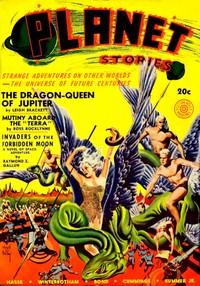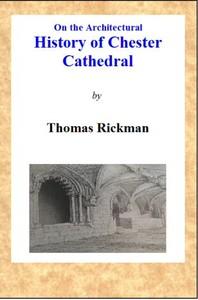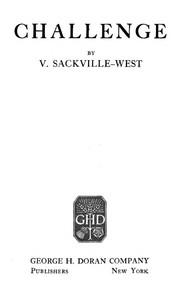Read this ebook for free! No credit card needed, absolutely nothing to pay.
Words: 282556 in 124 pages
This is an ebook sharing website. You can read the uploaded ebooks for free here. No credit cards needed, nothing to pay. If you want to own a digital copy of the ebook, or want to read offline with your favorite ebook-reader, then you can choose to buy and download the ebook.
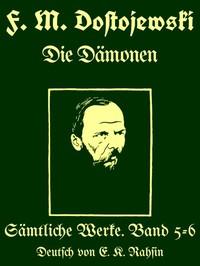

: Sämtliche Werke 5-6: Die Dämonen by Dostoyevsky Fyodor Merezhkovsky Dmitry Sergeyevich Contributor Moeller Van Den Bruck Arthur Editor Rahsin E K Translator - Political fiction; Russia Social life and customs 1533-1917 Fiction; Nihilism Fiction; Terroris
THE LYCEUM REHEARSALS. BY G. B. BURGIN.
A BLESSING DISGUISED. BY F. W. ROBINSON.
NOVEL NOTES. BY JEROME K. JEROME.
ON PILGRIMS AND THE PILGRIM SPIRIT. BY A. ADAMS MARTIN.
A COLLEGE IDYL. BY S. GORDON.
MY FIRST BOOK. BY F. W. ROBINSON.
EXPERIENCES OF A 'VARSITY OAR. BY AN "OLD BLUE."
BY G. B. BURGIN.
One day a paragraph appears in the papers that a new piece will shortly be produced at such and such a theatre. Paterfamilias lays down the paper and placidly observes that it may be worth while getting seats. Then he goes down to the theatre, books seats, and troubles himself no more about the matter until the first night of the play in question. The world behind the curtain is one with which he is totally unfamiliar. He knows naught of its struggles, its hopes and fears, its arduous work, its magnificent prizes and sore disappointments. So many thousands of pounds have been spent in preparing the play, so many reputations are at stake, so many hearts will be gay and glad to-morrow, or aching with the bitter pain of defeat. But to Paterfamilias these are all the joys or sorrows of another world. As he watches the smooth, easy performance, in which every actor has his place, in which the whole pageant produces itself without apparent effort, he fails to imagine the ceaseless work involved in its adequate realisation. He does not know that for weeks before the production of a new play, say at the Lyceum for instance, Mr. Irving and the wonderful company which he has gathered round him labour over it often far into the night after the audience has left. The general idea of an actor's life is that it is a delightful round of social pleasures tempered by a few hours' light, agreeable work in the evening; to those who think this, a visit to the Lyceum rehearsals would reveal the other side of the shield. Very few men in London labour so indefatigably as Mr. Irving. To watch him directing a rehearsal almost makes one's head ache at the mere idea of such unceasing labour. Every motion, however insignificant, of each individual on the stage, from himself down to the newest and rawest "super," has to be thought out and planned in Mr. Irving's brain. Like an ideal general, he leaves nothing to chance, nothing to subordinates. The turning up or down of every gas jet, the movement of every piece of furniture, the effect of every note of music, has received his most careful thought. One watches him stand hour after hour on the Lyceum stage, without weariness, without impatience, guiding the whole of the great production. And though Mr. Irving never spares himself, he is very considerate to others. When, for instance, a young actor is unable to comprehend the full meaning of an explanation, Mr. Irving walks up and down the stage, one arm on his shoulder, and explains the whole conception of the part. He is not only a great actor, but a great teacher; and his influence pervades and dominates every being in the theatre. He does not merely assert, but gives full and sufficient reason for every action until every one on the stage grasps the exact meaning of the scene as well as he does himself. As an instance of this, let us follow the rehearsals of "Becket."
The theatre itself is deserted save by some ghostly caretaker who glides noiselessly through the shadowy gloom, sliding a brush over the upholstery without looking at it, and replacing each covering as she goes. On the stage are two gentlemen wearing picturesque soft hats, and long coats which reach to within half-a-foot of the ground. The taller of the two, Mr. Henry Irving, wears a light drab-coloured coat and dark hat; Mr. William Terriss is attired in a light hat and dark coat. In the centre of the stage, close to the foot-lights, stands a screen; behind the screen is a chair. To the left of the stage is placed a small table with a big gilt cross on it. On the extreme right there is another small table laden with papers, plans of the stage, and letters. At the back of the stage are grouped numerous male "supers," clad in ordinary morning costume and wearing the inevitable "bowler" hat, which does not harmonise very well with the huge spears they carry. It is the scene in the second act of the late Poet Laureate's "Becket," "The Meeting of the Kings," and Mr. Irving is busily engaged grouping some fifty people who are required to pose as barons, French prelates, and retainers. When he has done this, there is still something wanted to complete the picture. Two pages are lacking. "Where's Johnny?" asks Mr. Irving, and "Johnny" appears. Mr. Irving eyes him critically. "I'm afraid you're too big, Johnny," he says, and "Johnny" disappointedly makes way for a smaller boy.
"'Blessed be the Lord Archbishop, who hath withstood two kings to their faces for the honour of God.'"
But Mr. Irving is not satisfied with the crowd. "Slower and more gravely, please. I want the emphasis on 'the Lord Archbishop.' So! That will be very good."
Free books android app tbrJar TBR JAR Read Free books online gutenberg
More posts by @FreeBooks

: Oeuvres complètes tome 4 by Sterne Laurence - English fiction 18th century Translations into French; Sterne Laurence 1713-1768 Correspondence Translations into French; Sermons English 18th century Translations into French FR Littérature; FR Nouveautés
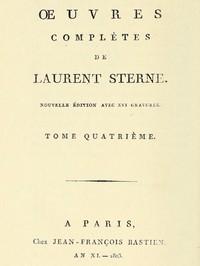

: World of Mockery by Moskowitz Sam Lynch Don Artist Illustrator - Science fiction; Short stories; Human-alien encounters Fiction; Castaways Fiction; Ganymede (Satellite) Fiction
